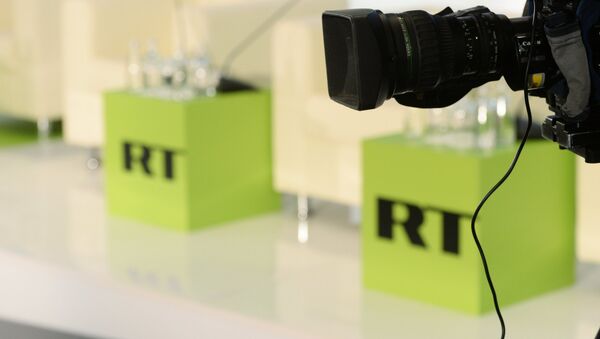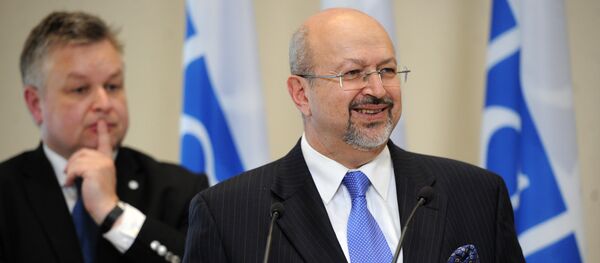"So, we are in a phase, where a constructive approach is replaced by accusations and aggressive language… the media has fallen victim of this kind of environment and there are accusations and there are artificial barriers, which is unfortunate. And my point is that the OSCE is a space for dialogue, which should be used positively, to try to engage on the situation when there are accusations, violations and conflicts but we also should use this space to understand from where these problems are coming from and to start also identifying tasks for finding solution," Zannier said.
Commenting on the alleged interference of Russia and Russian media in the internal affairs and election processes in other states, Zannier said that this global environment should be changed in order to make the issue "less controversial."
Russian media outlets broadcasting in Europe and the United States have been repeatedly accused by US and other Western officials for allegedly spreading misinformation and attempting to influence public life.
In November 2016, the European Parliament voted in favor of a resolution to countering alleged Russian anti-EU propaganda and media. The resolution accuses the Kremlin of funding anti-EU political parties and movements inside the bloc. The EU Parliament's resolution also said that such media as Sputnik and RT posed a danger to European unity and called for extra European Commission funding for counter-propaganda projects.
The Russian president, commenting on the adoption of the resolution, stressed that it indicated an apparent degradation of the concept of democracy in those Western societies.




